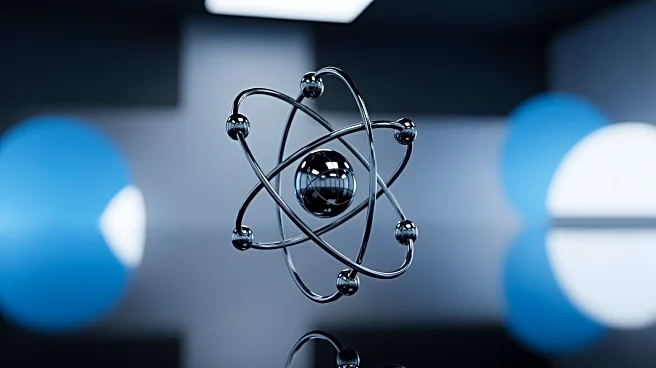What's Happening?
Top officials from the Department of Energy and the National Nuclear Security Administration (NNSA) are set to meet with the White House and the National Security Council to discuss President Trump's suggestion to resume nuclear weapons testing. Energy Secretary
Chris Wright and NNSA leader Brandon M. Williams, along with officials from the US National Laboratories, plan to advise against the resumption of explosive nuclear testing. This meeting follows President Trump's social media post instructing the Department of Defense to start testing nuclear weapons, citing other countries' testing programs as a reason. The NNSA, responsible for maintaining the nuclear stockpile, is expected to present a plan that avoids explosive testing, aligning with the current practice of testing all parts of nuclear weapons systems except for the explosive material. The last full-scale nuclear test in the US occurred in 1992, and the practice was banned in 1996.
Why It's Important?
The potential resumption of nuclear testing by the US could have significant geopolitical and environmental implications. It may provoke other nations, such as China and Russia, to resume their own testing, escalating global nuclear tensions. Domestically, it could lead to legal challenges and environmental concerns, particularly in Nevada, where testing would likely occur. The move could also impact US international relations, as it may be perceived as a step back from non-proliferation commitments. The decision to resume testing could affect public health due to potential radiation exposure, reminiscent of past testing impacts on nearby communities.
What's Next?
The upcoming meeting will likely focus on persuading the White House to adopt a non-explosive testing approach. If President Trump decides to proceed with explosive testing, it could face significant legal and environmental hurdles, potentially delaying implementation. The state of Nevada's approval would be necessary, adding another layer of complexity. The administration's decision could also influence other countries' nuclear policies, potentially leading to a new era of nuclear testing.
Beyond the Headlines
Resuming nuclear testing could have long-term implications for US nuclear policy and international arms control agreements. It may challenge the global norm against nuclear testing established by the Comprehensive Nuclear-Test-Ban Treaty, which the US has signed but not ratified. The decision could also impact the US's moral standing in advocating for non-proliferation and disarmament globally.















